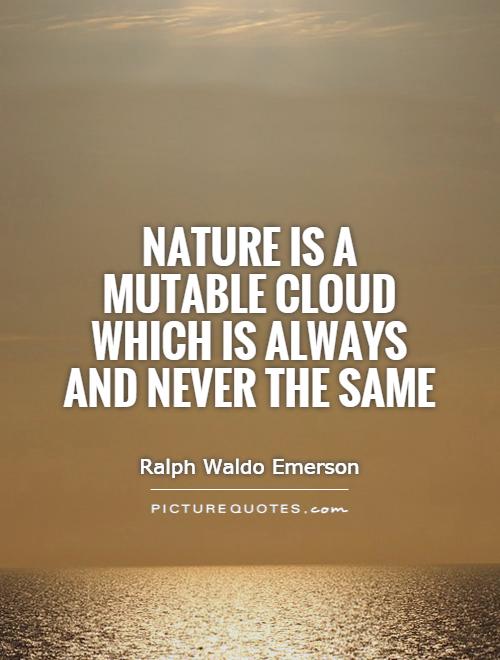Nature is a mutable cloud which is always and never the same

Nature is a mutable cloud which is always and never the same
Ralph Waldo Emerson, a prominent figure in the transcendentalist movement of the 19th century, often wrote about the interconnectedness of nature and the human spirit. One of his most famous quotes, "Nature is a mutable cloud which is always and never the same," encapsulates his belief in the ever-changing and dynamic nature of the natural world.Emerson saw nature as a living, breathing entity that was constantly evolving and adapting. Just as a cloud can change shape and form in an instant, so too does the natural world undergo constant transformation. The seasons change, the tides ebb and flow, and the landscape shifts with the passage of time. This fluidity and impermanence of nature were central themes in Emerson's philosophy, as he believed that the beauty and power of the natural world lay in its ability to constantly renew and reinvent itself.
For Emerson, nature was not just a passive backdrop to human existence, but a vibrant and active force that could inspire, challenge, and transform those who engaged with it. He believed that by immersing oneself in nature, one could gain a deeper understanding of the interconnectedness of all living things and tap into a universal source of wisdom and creativity.
In the context of Emerson's philosophy, the idea that nature is "always and never the same" speaks to the paradoxical nature of existence itself. While the natural world may appear stable and unchanging on the surface, it is in fact in a constant state of flux and transformation. Just as a cloud can shift and morph before our eyes, so too can our perceptions of the world around us change and evolve as we engage with the beauty and mystery of nature.












 Friendship Quotes
Friendship Quotes Love Quotes
Love Quotes Life Quotes
Life Quotes Funny Quotes
Funny Quotes Motivational Quotes
Motivational Quotes Inspirational Quotes
Inspirational Quotes